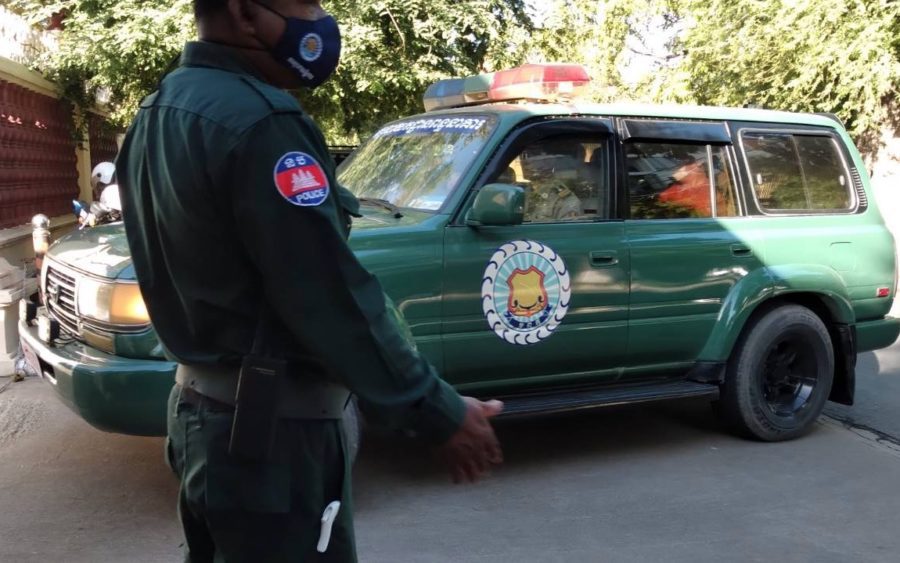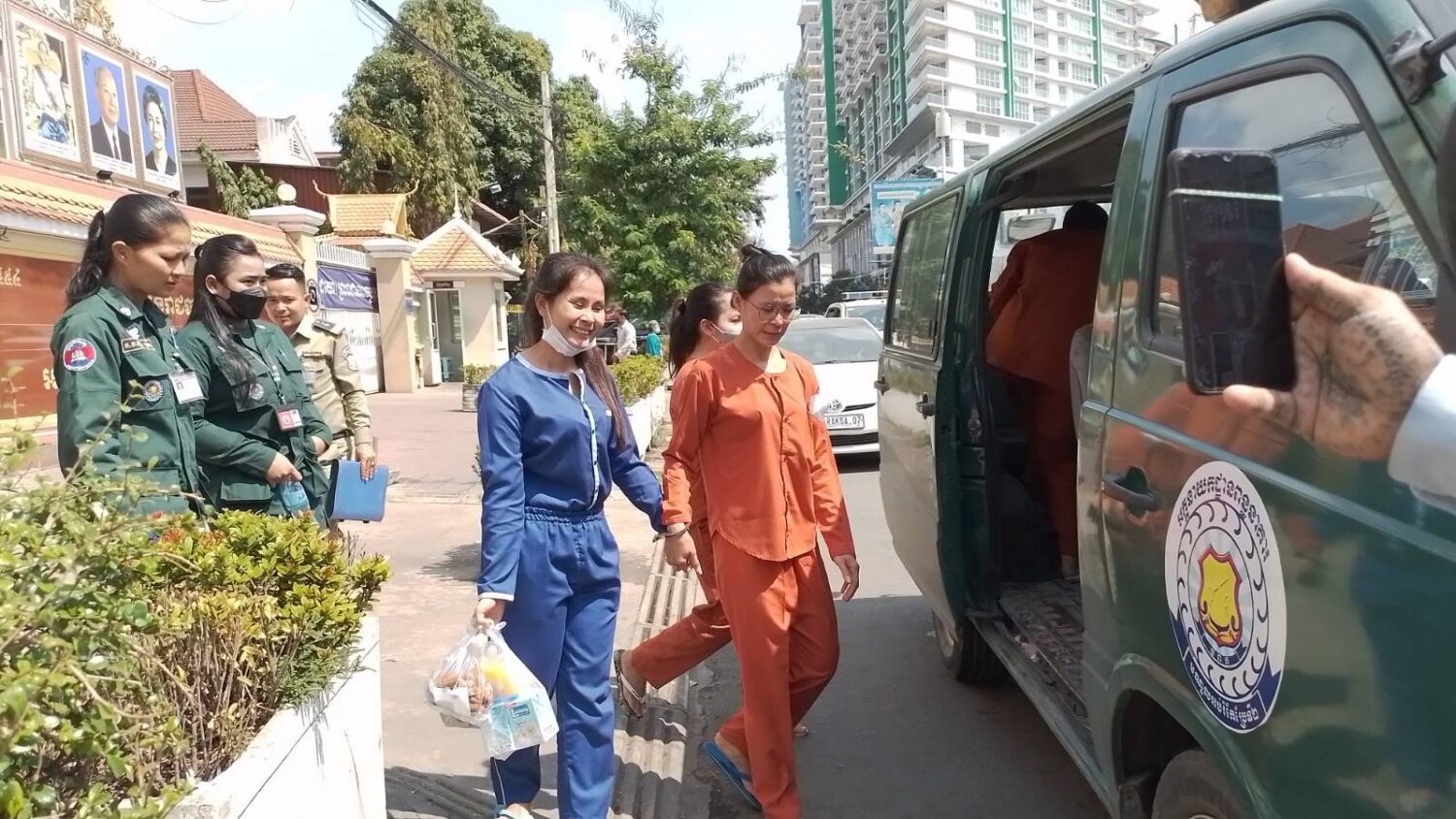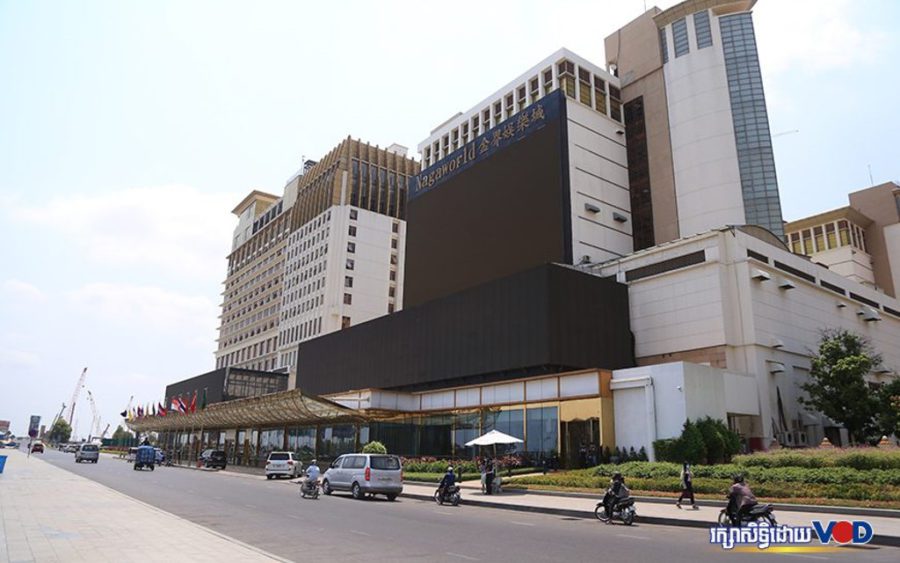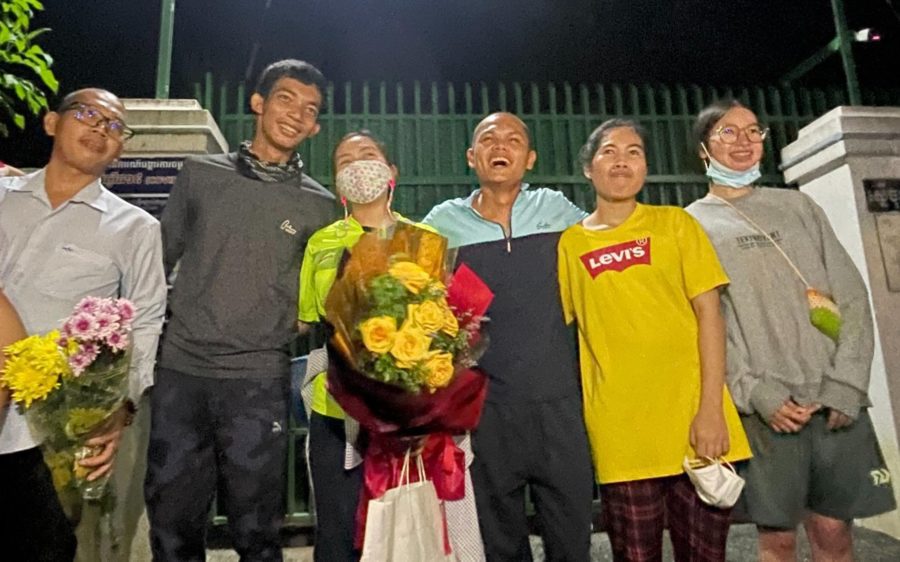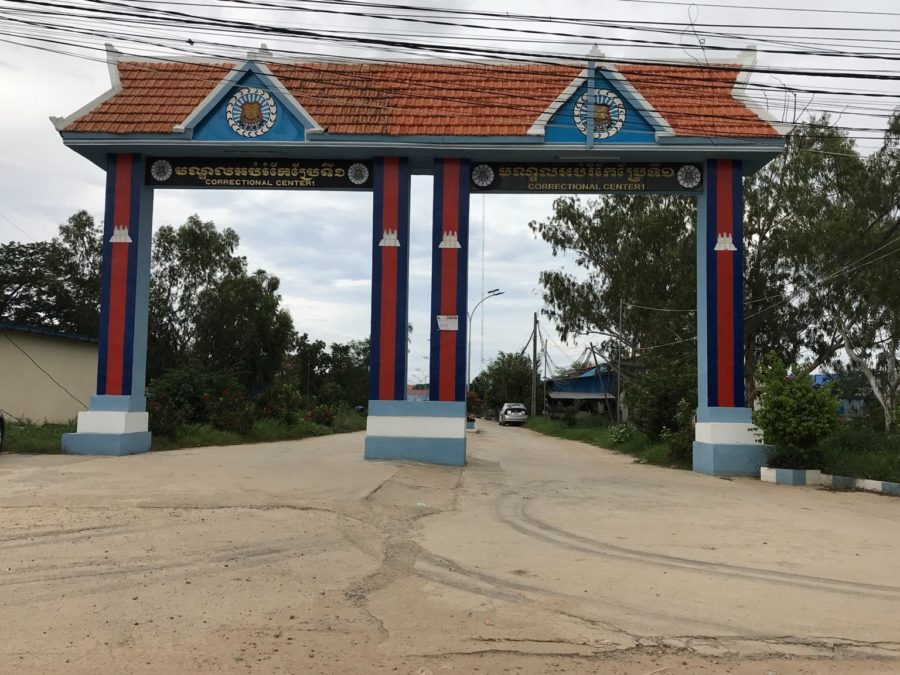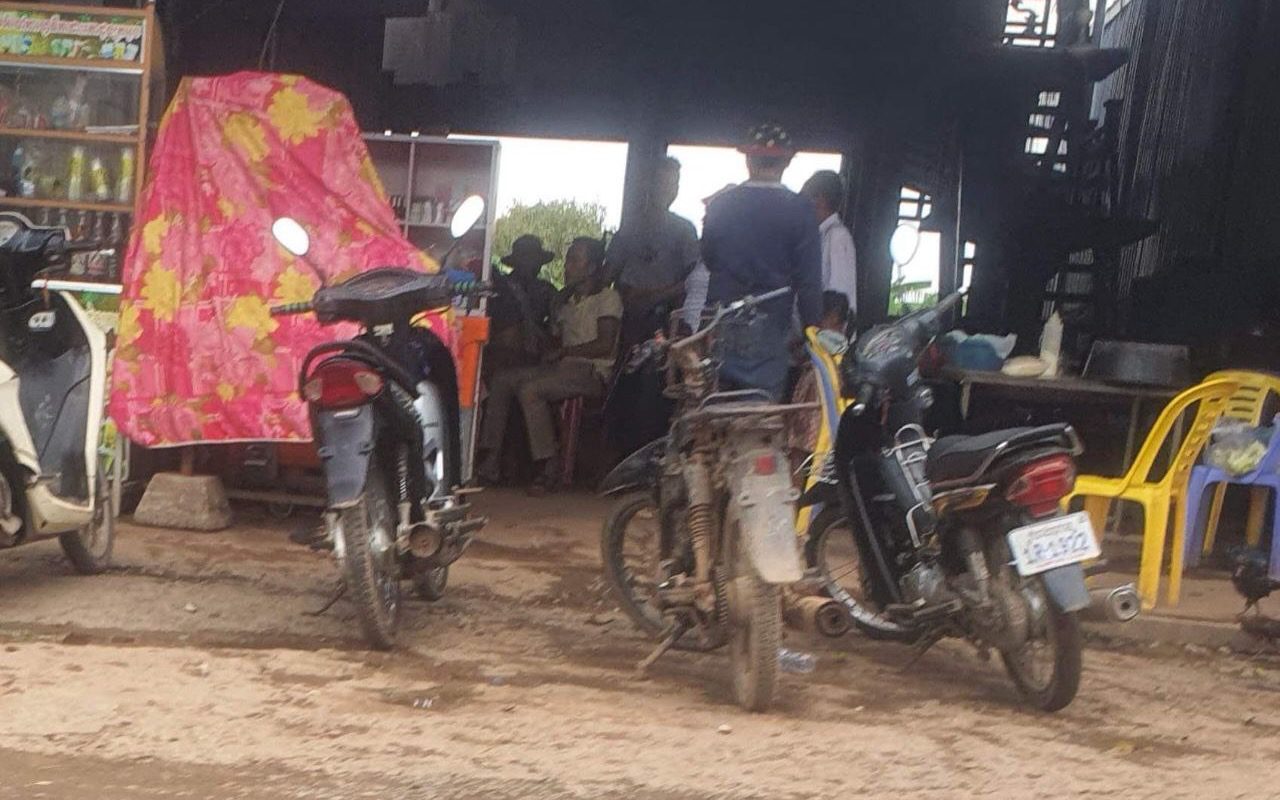The defense lawyer for a former Takeo governor and a former deputy police chief, both convicted for murder, claimed to the Supreme Court that the evidence brought before the lower courts should have exculpated their clients.
Former Takeo governor Lay Vannak and his older brother Lay Narith, who was the deputy provincial police chief, were found guilty of murdering Chev Sovathana, 36, who was found dead in her Takeo home in January 2018. The two men were sentenced to 13 and 10 years of prison, respectively, in September 2019, and the sentences were upheld by the Appeal Court last year.
The death of Sovathana, who was characterized as a mistress of Vannak by the defense, was originally ruled a suicide but later investigated as manslaughter on prompt by the Interior Ministry. Two others — Choem Vuth, the husband of Sovathana’s cleaner, and Men Samay, a driver for Vannak — were also sentenced to two years for hiding evidence in the 2019 municipal court ruling.
At the start of the hearing, Supreme Court presiding judge Nil Nonn rejected defense lawyer Ny Chandy’s request to have a forensic officer at the trial and instead urged lawyers to discuss the matters of the law, rather than the facts of the case.
The defense said it contested the case on violations of the U.N.’s convention against torture, as well as articles 256 and 321 of Cambodia’s criminal procedure code, both regarding technicalities of evidence presented in a legal case.
During the hearing, Nonn interrupted the defense twice to remind them to get to the crux of their complaint and spend less time enumerating evidence in the case.
Appeal Court prosecutor Chan Dararaksmey asked the judges to uphold the Appeal Court decision, saying he drew conclusions based on the testimonies of Vuth and Samay, which matched evidence from the crime scene. Both witnesses said they had been ordered to make Sovathana’s death look like suicide, with Vuth saying Vannak had slapped the victim and Samay adding he personally had been abused by the former governor.
Chandy, one of the defense lawyers for Vannak and Narith, disputed the prosecutor’s conclusion, claiming Vannak and Narith was not at the scene of the crime, adding that other witnesses, including a driver for Narith, had testified in defense of the accused at the time of the murder. He also said that most of the evidence in the case, such as a letter from Sovathana detailing the relationship and expressing sorrow that a lover was married, appeared to support the interpretation that she died of suicide.
Chandy also raised issue with the report prepared by the Interior Ministry’s technical team, claiming most of their analysis appeared to describe the death as a suicide until a final line, which suggested that Sovathana’s death could also be manslaughter. A forensic doctor had also already interpreted the 2018 death as a suicide, he continued.
Sek Sovanna, a lawyer for Vuth and Samay, also asked the Supreme Court to reevaluate the lower courts’ decisions.
She said both her clients had changed their accounts of the death throughout the investigation process, noting that Samay had blamed Vannak for the murder after the third of four testimonies. The court should also consider the fact that Vuth and his wife, Chan Ry, had been held at a guesthouse for 22 days, further muddying witness testimonies.
“If we closely look, their testimonies at the judicial police are not matching with each other, so [they] cannot be considered as evidence to inculpate in this case,” she said. “I ask the court to consider the Appeal Court’s decision and that this decision is not clear.”
When asked for their response to the lawyer’s statements, both Vannak and Narith agreed with what was presented.
Vannak admitted that he had quarreled with Sovathana before her death, and he was concerned that photos of the two together on her phone would affect his career as governor. He also raised objections over his conviction, saying that his clothing was found in Sovathana’s bedroom and there were no signs of a struggle on her body – both showing that he wasn’t involved.
“If I had killed her when I met her, why would I not take the phone [from her room]? My shirts were also there, why would I not collect [my stuff] by myself rather than let Samay collect it?” he told the judges. “If I really killed her, there must be marks somewhere [on her body], as she must not stay still to let me kill her.”
Narith added that he would like the judges to take a closer look at the locations of the accused persons’ phones and the changed testimonies from key witnesses.
The Supreme Court will issue a decision on December 24.


